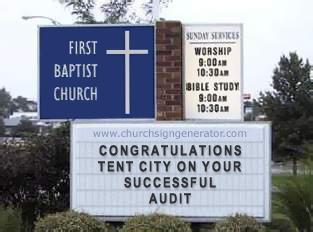
I've appreciated the great comments from folk about polyamory. My interview with the London film crew is happening this morning, and here are some revised thoughts about polyamory from a church perspective.
A discussion of polyamory should recognize the church's well-earned and sad reputation for judgment and condemnation of human sexuality. I hope Christians have learned over the years that there is little gain from making people feel bad about their loving relationships. The gay/lesbian struggles of the last century have taught us that people often "color outside the lines" in their relationships, and non-traditional unions can bring happiness. We've condemned enough sex in the past to last us another couple of millenia.
So, "why wouldn't the church support polyamory?" To understand why not, a person would have to dig into the roots of the Christian understanding of marriage.
Christian marriage has its precedents in ancient Jewish marriage practice, in which wives were not given equal rights with husbands. A husband could have multiple wives, but women could not have multiple husbands. Husbands could divorce their wives in a simple, too easy process. Wives had no recourse for divorce. Marriage amounted to a form of slavery.
Jesus critiqued this view by opposing divorce as inappropriate except in cases of infidelity. The purpose was to protect the rights of wives. St. Paul then compared the relation of Christ and the Church to that of a husband and wife. He set up fairly strict norms for how marital roles were to be observed, and he proclaimed that elders in the church were to be "husbands of one wife."
As Christianity became the official religion of the Roman empire, it took on Roman customs around marriage, most notably the idea that marriage was monogamous and there must be consent by the partners to the marriage. This has become the common viewpoint of Christian marriage - lifelong, monogamous, based on mutual consent. The Catholic church ultimately determined marriage to be a sacrament - a means of receiving the grace of God.
Protestant understandings of marriage (most notably from the introduction to the wedding ceremony in the Book of Common Prayer) are that marriage is about 1) the nurturing of children, 2) avoidance of sin, and 3) mutual companionship.
That traditional marriage is a positive model for the nurturing of children likely has few detractors. This concept is affirmed by modern family studies, which suggest that the best environment in which to raise children is one in which there is a strong "primary" bond between parents, followed by strong "secondary" bonds between parent and child. In other words, when the parents are together, committed, and loving of each other, the child has the best environment for nurture.
"Avoidance of sin" springs from the idea that sex is sacred and special and is to be experienced within the boundaries of a committed, permanent relationship. Sexual sin comes when we exploit another person for our own pleasure, or when we spend our sexual energy for a goal other than love. Some people outside the Christian faith are justifiably tired of Christians equating sex in general with sin. Since St. Augustine, this has often been the case. In today's context, I think we should instead state that sex within the boundaries of a permanent, committed, monogamous relationship is our choice for people who follow the Christian faith. Within Christianity, experirence has taught us that monogamous marriage is the highest and best context for the full expression of our sexuality.
Why is this so? It comes from the third Protestant notion of the importance of marriage - the ideal of human companionship. If a person truly loves another person, they can express that by choosing that person as their sole partner. Monogamous marriage requires the decision: "I choose this lover, and this lover is enough." Inability to choose a single lover is failure to commit oneself in one's fullest being to the loving relationship. A person's potential for growth in depth of love is diminished. True commitment is demonstrated when one pays a price for his or her choice, when one makes a sacrifice for the choice he or she has made.
Our critique of polyamory would be that there is no sacrifice necessary, no choice made that forces the person to make a sacrifice. Can there be true love without some sort of sacrifice? The Church would say, "no," and would encourage followers of Christ to say the same. Put another way, what better gift can a person give to their lover than to be their only lover all their life long?








